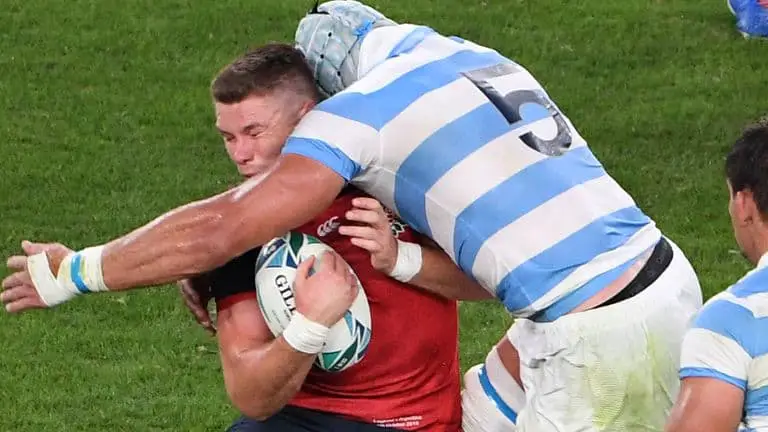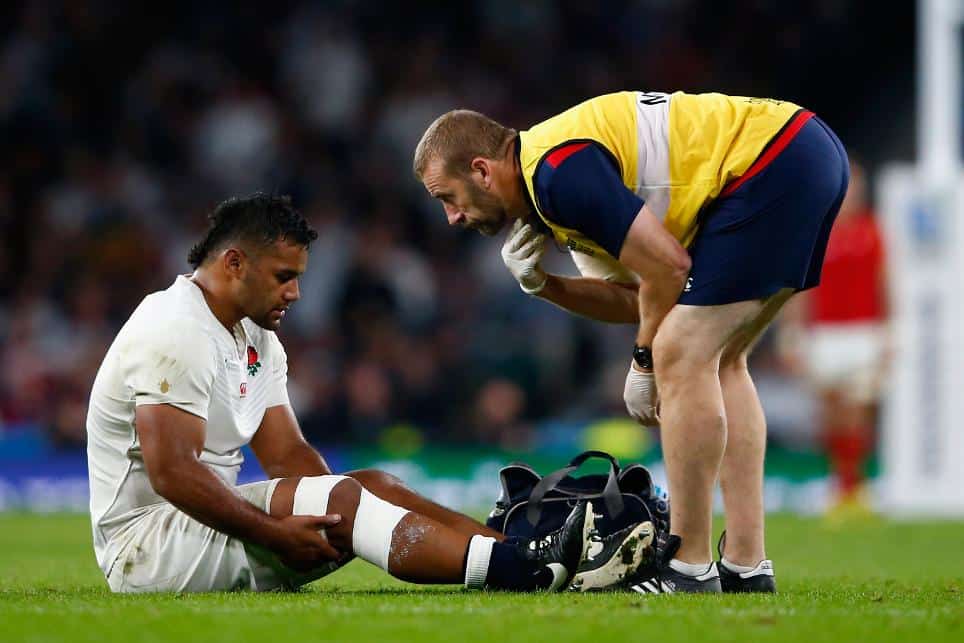
Rugby is a great game and can really bring out the best in people. There are so many benefits of the sport such as getting you into great shape, making lifelong friends, dealing with loss and learning the power of teamwork. However, the negatives of the game and its ability to destroy your body can not be ignored.
Is rugby bad for you?
Rugby is a high risk sport that is bad for your body. Your chance of suffering an injury is over 90% if you play 2 or more seasons. Rugby has one of the highest concussion rates of any sport at 18 per 1000 hours of play, which is greater than American football.
There is no escaping the facts, rugby is a dangerous sport. If you play rugby long enough you will suffer injuries and most likely some serious injuries. I broke my collarbone and fractured my arm, sprained my ankle multiple times and broke a couple of fingers. I got off lightly.
Fortunately, I never suffered any head injuries even though I was involved in many head clashes over the years and I never hurt my knees which are particularly nasty injuries many players have to deal with.
Rugby can not be played safely. You can only reduce your risk of injury by strengthening your body, using correct technique and avoiding risky situations on the pitch. Playing rugby will lead to injuries. It comes down to a personal choice on whether you think the benefits of the game outweigh the risk of injury.
How Do Injuries Occur In Rugby?
59% of injuries in rugby occur during a tackle. As players collide at high speeds they are susceptible to suffering a variety of injuries such as concussions, dislocations, sprains and tears to knees, shoulders, and arms.

Tackling results in the majority of rugby injuries and the majority of severe injuries. Nearly all concussions occur during tackles as players get their head struck by other players’ heads, elbows, knees and shoulders. 33% of injuries during a tackle occur to the ball runner, while the defender cops 66% of the injuries.
As tackling is a very dangerous aspect of rugby there have been calls to ban it in junior rugby and force all senior players to wear headgear. These calls have been met with contempt by the notoriously macho rugby community.
If you are thinking of playing rugby but are worried about the risk of injury then you should consider playing touch rugby. The injury rate is much lower and the chance of concussions is very low.
Do Rugby Players Suffer Knee Injuries?
Knee injuries are the most common severe injury in rugby, on average sidelining a player for 37 days and accounting for 21% of all days missed due to injury. A rugby club will have 10 players suffer knee injuries each season. 84% of knee injuries occur during a match while only 16% occur during a training, this is due to the lack of high intensity contact training at training.

Knee injuries are common in rugby and can be incredibly challenging to overcome. Many players are never the same and are forced to retire after suffering injuries such as ACL and MCL tears. They never gain the stability and speed they once had and have to hang up the boots.
Knee injuries are most common amongst backs and typically occur during a tackle. This is to be expected as backs are often running at speed in open field and stepping and changing direction rapidly, compared to forwards who often run short distances and run in a straight line. Players are at most risk of knee injuries during the last 20mins of a rugby match. This suggests that fatigue places players at greater risk of suffering an injury.
Do Rugby Players Suffer Brain Damage?
Rugby players regularly suffer concussions (on average 1.8 concussions occur in every game of rugby), which can lead to brain damage and diminished cognitive function and reduced memory capacity.

Studies have shown that rugby players who have suffered at least one concussion perform worse than players who had never suffered a concussion in terms of cognitive flexibility, executive functioning and complex attention. Retired rugby players who have suffered concussions are also more likely to have reduced fine motor skills compared to control populations.
A recent study of a young rugby player who has a history of concussions has revealed that head injuries from rugby can accelerate brain ageing by shrinking and killing brain cells. The young player’s brain function was comparable to that of the average 60 year old. Rugby related concussions have the ability to accelerate biological brain ageing by as much as three decades.
The amount of concussions in rugby is very worrying, as the new evidence shows how devastating a single concussion can be on a player’s long term brain health. A single blow to the head during a rugby match can cause permanent brain damage, reducing cognitive and memory function.
Which Rugby Position Is The Most Dangerous?
Hooker is the most dangerous position in rugby. Hookers are most likely to suffer blood drawing injuries and to hurt their necks. They are also the second most likely to be concussed and suffer serious shoulder injuries.

If you don’t want your rugby career to be over before it’s just begun then stay away from the front row. Based on a 3 year study into injuries in the top French rugby union league front row forwards were most likely to suffer injuries that forced retirement, accounting for 24% of medically induced retirements. These were nearly all neck injuries.
It isn’t just the front row you need to stay away from. Based on the same study, shockingly, front row forwards and scrum halves accounted for 43% of permanent replacements during a game because of injuries. If you thought you could hide behind your big forward pack and be safe as a scrum half you thought wrong.
Scrum halves suffered the most knee, shoulder and muscular injuries. While Five-eighths were the most likely to be concussed.
Everyone always knew that playing in the front row was the most dangerous position. However, it used to be assumed that was because of the danger of scrummaging, in opposition to this widely held the French study found that scrums were only responsible for 2.4% of injuries and it was in fact the amount of tackling that the front row does that makes them susceptible to injuries.
Conclusion
I wish I could tell you a different story but the facts are pretty clear, rugby is a dangerous sport that is bad for your body. The likelihood of suffering an injury while playing rugby for 2 seasons or more is over 90%. Talk to any rugby player and they will give you a long list of their former injuries.
Fortunately, most of these injuries are not too severe. However, serious knee and head injuries (even higher than American football) are common in rugby and with the new research about the permanent damage concussions can cause the brain (reduced cognitive function and memory capacity), rugby has to be classified as a dangerous sport.
